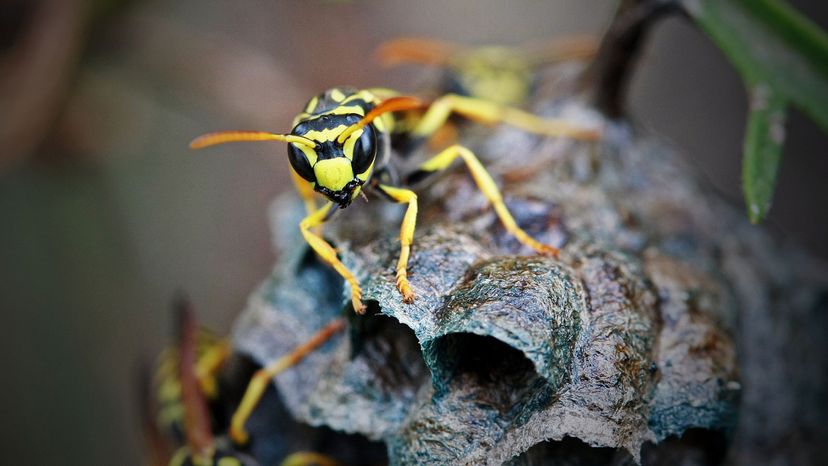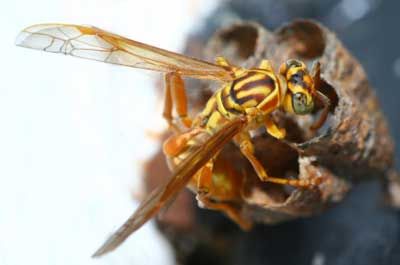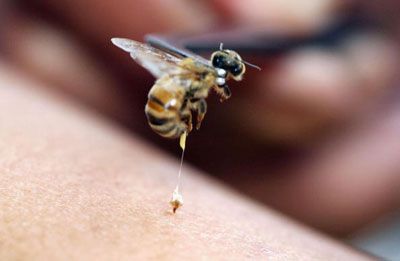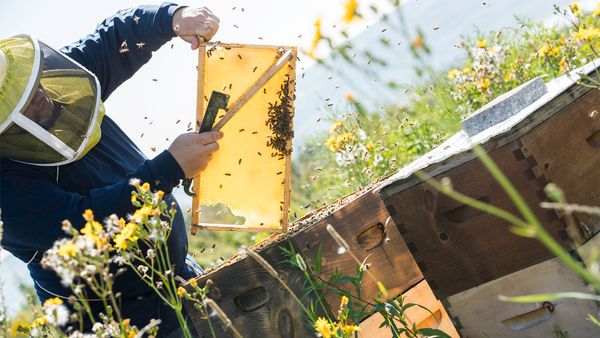
Wasps have gotten a bad rap since day one.
In the Old Testament, when the Almighty wanted to really stick it to the enemies of Israel, he sent in a plague of hornets. And Aristotle, writing in 350 B.C.E., said that "hornets and wasps... are devoid of the extraordinary features which characterize bees; this we should expect, for they have nothing divine about them as the bees have."
Advertisement
While bees have long been beloved for their delicious golden honey and hardworking pollination habits, wasps — which include social species like hornets and yellow jackets — are universally despised. A beehive is a miraculous work of nature. A wasp hive is a reason to call the Orkin man.
But a team of scientists at University College London (UCL) believes that wasps deserve as much love as bees do. Wasps, like bees, are powerful pollinators. But unlike bees, wasps are also apex predators, regulating insect populations and killing off crop pests. Sure, wasps don't make sweet amber nectar by the jarful, but in some parts of the world wasp larvae are a seasonal delicacy (fine, the bees win that round).
Seirian Sumner, Ph.D. studies the evolution of insect social behavior at the Center for Biodiversity and Environment Research at UCL, where she's painfully aware that our unfounded bias against wasps undercuts scientific research on the misunderstood creatures. Who wants to fund a nasty wasp study, after all, when we can publish the one-trillionth paper on the beauty of bees?
"The reason we hate wasps culturally is because we don't understand what they do," says Sumner. "And the reason we don't understand what they do is because there's very little science to show what they do. If we can make people think about wasps the same way they think about bees, then we can turn the wheels around and change the public perception of wasps."
In a study published on Sept. 19, 2018 in Ecological Entomology, Sumner and her colleagues found that wasps are rarely the subject of research into the important "ecosystem services" performed by insects, things like pollination and pest control. Of 908 papers published on the topic since 1980, only 22 (2.4 percent) focused on wasps. And of the 2,543 conference abstracts submitted on bees or wasps in the past 20 years, 81.3 percent were exclusively about bees. And the "bee bias" has been increasing probably because of targeted funding for bee research over the past 10 years.
With such a scarcity of wasp research, it's no wonder that the general public has a dark opinion of the flying critters, known only for their sting and fabled aggressiveness. Sumner's team conducted an online survey asking people to list words they associated with bees, butterflies, wasps and flies. Butterflies generated the most positive results with words like "beautiful," "delicate" and "colorful," but bees were a close second with "honey," "flowers" and "pollination."
Wasps, on the other hand, conjured more negative emotions than even those buzzing black flies. The most common wasp words were "sting," "annoying," "dangerous" and "angry." A clear sign of our complete ignorance of wasp behavior is that the word "pollination" didn't even make the top ten.
Advertisement


